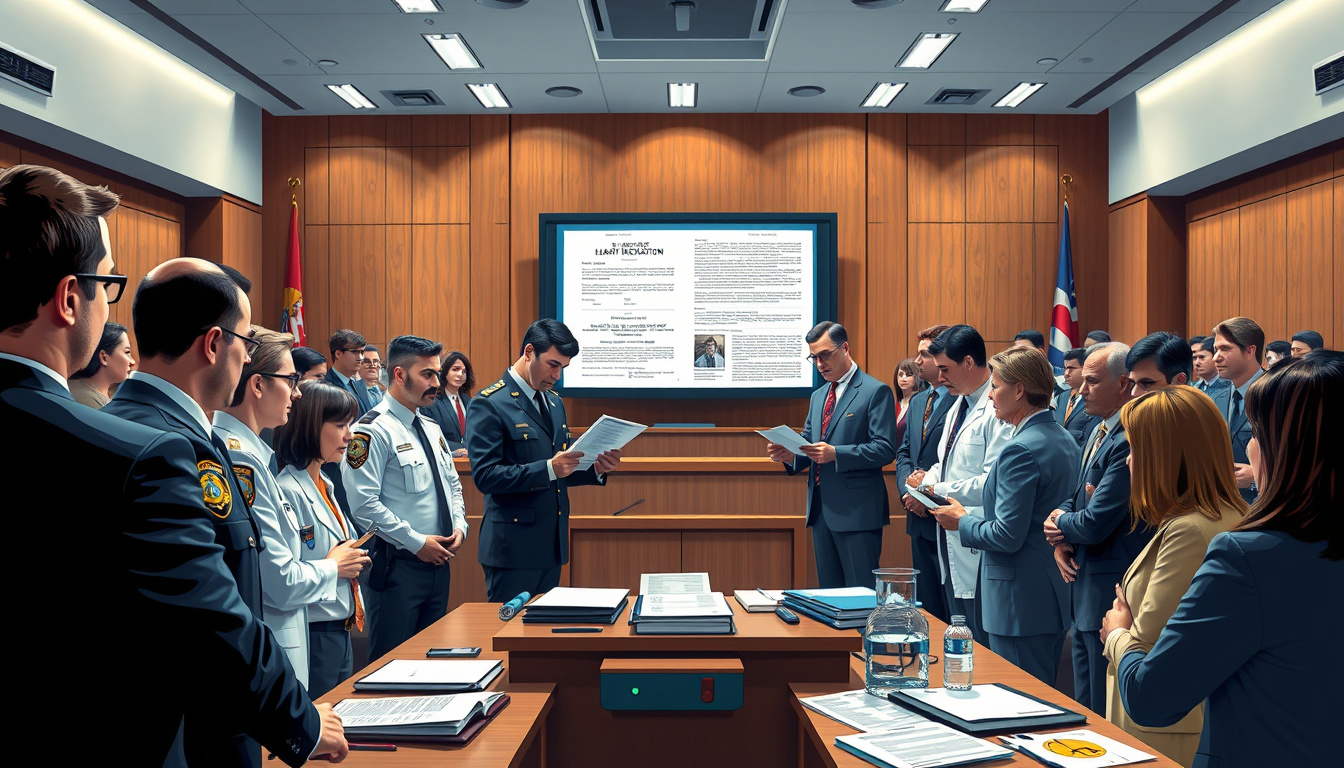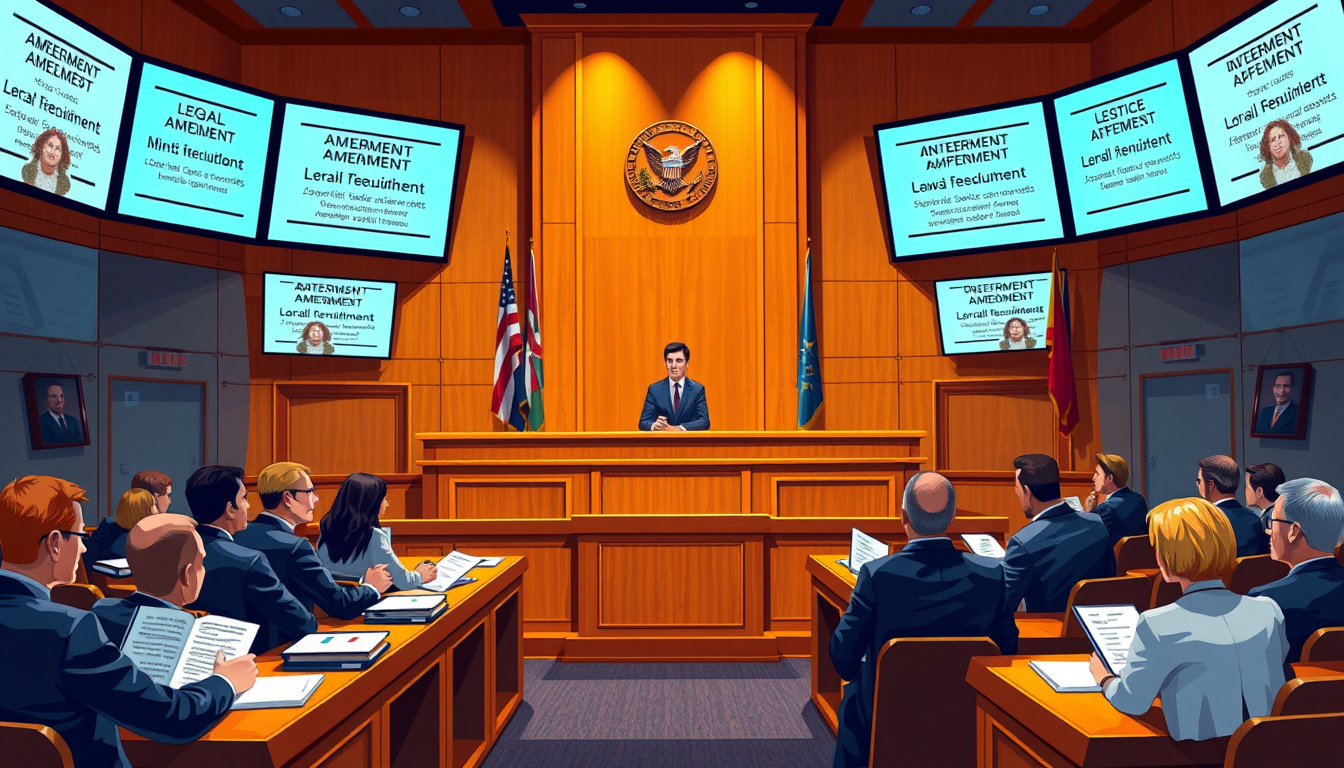If you are a military servicemember or a family member facing allegations related to sexual assault under Article 120 of the UCMJ (Uniform Code of Military Justice), it is crucial to understand your rights and the legal complexities involved in such cases.
Article 120, which addresses sexual assault offenses, has undergone significant changes and plays a critical role in military justice.
This article will provide an in-depth exploration of Article 120 UCMJ, covering the definitions and scope of sexual assault, key elements of the offenses, penalties for violations, investigation and prosecution procedures, potential defenses, and recent amendments and developments that may affect your situation.
Understanding these aspects can be vital for navigating the legal challenges you may face, helping you to protect your rights in the process.
 addresses sexual offenses and is a critical section for military servicemembers and their families to understand, especially when facing allegations related to sexual misconduct.</p>
<p>Under Article 120, the military prosecutes offenses such as sexual assault, sexual abuse, and rape, reflecting the military’s zero-tolerance policy towards these serious crimes.</p>
<p>Given the profound implications a charge under Article 120 UCMJ can have on a servicemember’s career, reputation, and freedom, it is essential for those involved to seek comprehensive legal counsel.</p>
<p>Understanding the specifics of Article 120, the charges that may arise, potential defenses, and the overall court process can provide much-needed clarity and peace of mind during such a challenging time.</p>
<h3>Definition and Scope of Sexual Assault under UCMJ</h3>
<p>Sexual assault under the Uniform Code of Military Justice (UCMJ) is a serious offense that encompasses a range of behaviors classified under Article 120 UCMJ.</p>
<p>This article not only defines the criminal offense of sexual assault but also delineates its various forms, including aggravated sexual assault, sexual assault, and attempts to commit sexual assault.</p>
<p>Specifically, Article 120 UCMJ is designed to address acts of sexual misconduct that undermine the integrity and discipline of the Armed Forces.</p>
<p>The scope of this article is broad, encompassing actions such as forced sexual contact, sexual acts involving coercion, and acts against individuals who are unable to consent due to intoxication or incapacitation.</p>
<p>The ramifications of being charged under Article 120 UCMJ can be severe, including court-martial proceedings, punitive actions, and potential administrative separations from service.</p>
<p>Understanding the specifics of Article 120 UCMJ is crucial for military servicemembers and their families, especially for those facing allegations, as it is essential to navigate the legal landscape effectively and seek the necessary support.</p>
<blockquote><p>‘Justice cannot be for one side alone, but must be for both.’ – Eleanor Roosevelt</p></blockquote>
<p><a href=)

Key Elements and Offenses Covered by Article 120
Article 120 of the Uniform Code of Military Justice (UCMJ) addresses various offenses of sexual misconduct, and it is crucial for military servicemembers and their families to be familiar with its implications, particularly if facing a court martial or administrative action.
This regulation covers several key offenses, including rape, sexual assault, and certain other sexual offenses.
Under Article 120, the military rightly treats sexual offenses with the utmost seriousness, reflecting the need to maintain good order and discipline within the ranks.
Understanding the nuances of Article 120 UCMJ is vital, as allegations can lead to significant consequences, including dismissal from service, loss of benefits, and long-term damage to your military career.
Importantly, Article 120 is also structured to support victims, emphasizing the military’s commitment to a zero-tolerance policy towards sexual misconduct.
The military justice system defines various elements of these offenses, which must be proved beyond a reasonable doubt in a court martial setting.
For servicemembers and their families, this insight into the workings of Article 120 UCMJ can empower them to navigate the complexities of the military legal system effectively.
Legal Consequences and Penalties for Violations
Understanding the legal consequences and penalties for violations under Article 120 of the Uniform Code of Military Justice (UCMJ) is crucial for military servicemembers and their families.
Article 120 primarily addresses crimes involving sexual offenses, including sexual assault and other related misconduct.
The ramifications of a conviction under this article can be severe, affecting not only the servicemember’s military career but also their personal life and civilian future.
Service members can face a range of penalties, including confinement, a dishonorable discharge, reduction in rank, and loss of benefits.
For those facing allegations under Article 120 UCMJ, it is essential to seek legal advice from a qualified military attorney who can provide guidance on navigating the complexities of these cases.
Understanding the specifics of the charges, potential defenses, and the overall judicial process is vital for securing the best possible outcome.
Moreover, it is important to remember that facing these allegations can lead to administrative discipline or separation, further complicating an already daunting situation.
Consequently, careful consideration of one’s rights and options is necessary to mitigate the long-term impact of such serious allegations.

Procedures for Investigating and Proseciting Under Article 120
When military servicemembers face allegations related to sexual offenses, the investigation and prosecution procedures are governed by Article 120 of the Uniform Code of Military Justice (UCMJ).
Article 120 specifically addresses offenses such as rape, sexual assault, and other sexual misconduct.
Understanding the intricacies of these procedures can be immensely beneficial for service members and their families as they navigate through potentially life-altering situations.
The process typically begins with an initial report of the incident, which can be made by the victim to a commanding officer or directly to criminal investigators.
This reporting stage is crucial because it sets the tone for the entire investigation.
Service members are encouraged to seek support from victim advocates or legal counsel to ensure their rights are protected as they move forward.
Once a report is filed, an investigation is initiated.
This could involve military law enforcement or, in some cases, civilian law enforcement agencies, depending on jurisdiction and the nature of the allegations.
Investigators will gather evidence, interview witnesses, and compile a report that outlines the findings.
It’s important to note that both the accuser and the accused have rights during this process, and having knowledgeable legal representation can be essential in addressing the complexities surrounding Article 120 UCMJ.
After the investigation is complete, the findings are submitted to the appropriate military authority for review, typically a judge advocate or a commanding officer.
From there, the military authority will determine whether there is sufficient evidence to proceed with a court-martial.
If evidence is deemed sufficient, formal charges will be filed, leading to a court-martial proceeding.
During the court-martial, the prosecution will present its case concerning the allegations made under Article 120 UCMJ, and the accused will have the opportunity to defend themselves against these serious charges.
The proceedings can be daunting, reflecting the serious nature of these allegations, and serving as a reminder of the importance of having experienced legal counsel available to navigate the proceedings effectively.
Ultimately, understanding Article 120 UCMJ and the associated investigative and prosecutorial processes can empower military servicemembers and their families during these challenging times.
Awareness and engagement from the outset can make a significant difference, emphasizing the necessity of being proactive in understanding rights and seeking legal guidance.
Defenses Available to Accused Individuals
When military servicemembers and their families face allegations, specifically under Article 120 of the UCMJ (Uniform Code of Military Justice), it is crucial to understand the various defenses available to accused individuals.
Article 120 addresses sexual offenses, and accusations can have severe repercussions, including court martial, administrative discipline, or separation from service.
Understanding the complexities of these allegations is paramount for any military member involved in such situations.
Defenses can vary significantly depending on the circumstances of the case and the specifics of the accusation.
Common defenses include arguing consent, challenging the credibility of the accuser, and demonstrating lack of intent or other mental states required for the offense.
When the claim is based on a misunderstanding or misinterpretation of an encounter, this can also factor into a defense strategy.
Engaging with legal professionals who are experienced in military law can provide invaluable support for servicemembers and their families navigating these challenging waters.

Recent Amendments and Developments in Article 120
### Recent Amendments and Developments in Article 120
Article 120 of the Uniform Code of Military Justice (UCMJ) deals with sexual crimes within the military, outlining the offenses defined under military law.
This article has undergone significant amendments, especially in response to growing awareness about sexual assault and harassment in the ranks.
Most notably, recent changes have clarified definitions, expanded the scope of offenses, and modified the sentencing framework.
For instance, the 2016 amendments introduced changes aimed at ensuring that the legal definitions accurately reflect the reality of sexual offenses and provide better protection for victims.
Additionally, the importance of consent has been stressed, ensuring that service members understand the legal repercussions of violating another’s autonomy.
Another pivotal development is the inclusion of provisions that address situations involving intoxication, where a victim may be unable to give consent due to the influence of drugs or alcohol.
These amendments aim not only to strengthen the prosecution of sexual offenses under Article 120 UCMJ but also to support a cultural shift within the military.
Such developments signal a commitment to combating sexual violence in military environments and highlight the critical nature of these issues for servicemembers and their families.
Being charged or facing an investigation under Article 120 UCMJ can drastically impact a servicemember’s career and personal life.
It is essential to understand the legal nuances and the serious implications of these charges, including potential punishments ranging from non-judicial punishment to court martial.
Therefore, if you find yourself or a loved one involved in a proceeding related to Article 120 UCMJ, seeking qualified legal counsel who specializes in military law is a crucial first step.
They can provide guidance through the complexities of military justice and help navigate the challenges that come with such serious allegations.
Frequently Asked Questions
What is Article 120 of the UCMJ?
Article 120 of the Uniform Code of Military Justice (UCMJ) addresses sexual assault and related offenses within the military.
It defines sexual assault, outlines the key elements of the crime, and specifies the legal consequences for those found guilty.
What offenses are covered under Article 120?
Article 120 covers several types of sexual offenses including, but not limited to, sexual assault, rape, and attempts to commit these offenses.
It details the elements required to establish these crimes and distinguishes them based on various factors such as consent and the age of the victim.
What are the penalties for violating Article 120?
Violations of Article 120 can result in severe penalties, including confinement, dishonorable discharge, and the potential for mandatory registration as a sex offender.
The specific penalty often depends on the severity of the offense and the circumstances surrounding it.
What are the procedures for investigating and prosecuting under Article 120?
The investigation of offenses under Article 120 typically involves military law enforcement agencies, which gather evidence and may interview witnesses.
Prosecution is conducted by military prosecutors who prepare the case for trial, usually in a court-martial setting.
Have there been any recent amendments to Article 120?
Yes, there have been recent amendments and developments to Article 120 that aim to improve the handling of sexual assault cases in the military.
These amendments have included changes to definitions, penalties, and procedures, reflecting a broader effort to address sexual violence more effectively.
If you or a loved one is under investigation or facing charges under the UCMJ, don’t wait to protect your future. Contact Gonzalez & Waddington, Attorneys at Law. Our battle-tested military defense lawyers have successfully defended service members worldwide against the most serious military offenses. Call us today for a confidential consultation and put our elite military defense attorneys in your corner.
Related Posts
- Soldier Cleared in Abuse Case
- Panama City Military Defense Lawyers
- Pre trial motions
- Norwich CT Military Defense Lawyers
- Video: Biased, Corrupt, and Incompetent Military Prosecutors
- Military Domestic Violence Defense Lawyer – UCMJ Domestic violence
- Video: Falsely Accused of Military Sexual Assault: What Should I Do? Military Sexual Assault Lawyer Tips
- Video: Fort Carson Military Defense Lawyers – Colorado Springs Court Martial Attorneys – Article 120 UCMJ



